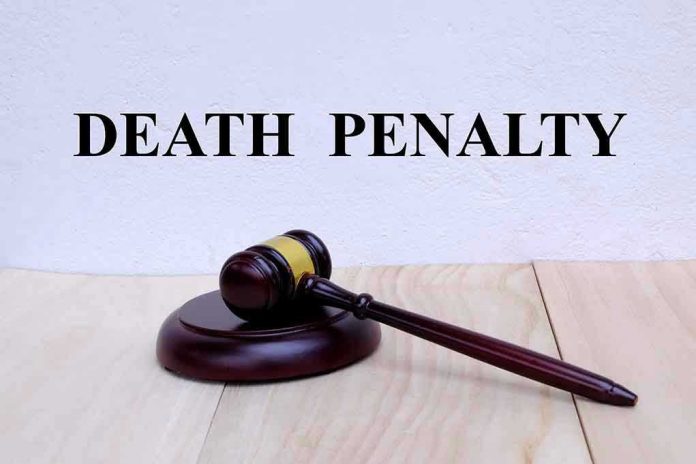
President Trump’s aggressive push to expand capital punishment is sparking a nationwide movement in state legislatures that could fundamentally reshape which crimes warrant execution in America.
Story Overview
- State lawmakers are responding to Trump’s call for expanded death penalty use with new legislation
- Proposals target a broader range of crimes beyond traditional murder cases
- Legislative and legal battles are emerging across multiple states
- The movement represents a significant shift toward more aggressive criminal justice policies
Presidential Influence Drives State Action
Trump’s vocal advocacy for capital punishment has energized conservative lawmakers nationwide. His administration’s emphasis on law and order resonates with legislators who believe current death penalty statutes are too narrow. State representatives are drafting bills that would extend capital punishment to crimes like drug trafficking, child sexual abuse, and cop killing. This coordinated effort reflects a broader conservative philosophy that severe crimes demand the ultimate consequence.
Trump’s death penalty push gains traction in statehouses https://t.co/WsXXUiE9Qc
— FOX8 WGHP (@myfox8) October 13, 2025
Expanding the Scope of Capital Crimes
Traditional death penalty cases focused primarily on aggravated murder, but the new wave of legislation casts a wider net. Lawmakers propose adding drug dealers who cause overdose deaths, human traffickers, and repeat violent offenders to death penalty eligible categories. Some states are considering capital punishment for crimes against children, including aggravated sexual assault. These expansions represent the most significant changes to death penalty law in decades, potentially affecting thousands of future cases.
Legal Challenges Mount Against Expansion
Civil rights organizations and defense attorneys are preparing constitutional challenges to expanded death penalty statutes. They argue that applying capital punishment to non-murder crimes violates the Eighth Amendment’s prohibition against cruel and unusual punishment. Supreme Court precedent from Kennedy v. Louisiana limits the death penalty for crimes where the victim doesn’t die, but proponents believe the current conservative court might reconsider such restrictions. The legal battleground will determine whether states can actually implement these broader capital punishment laws.
Political and Practical Implications
The death penalty expansion effort faces practical hurdles beyond legal challenges. Many states struggle with existing death penalty procedures, including difficulties obtaining lethal injection drugs and lengthy appeals processes. However, the political momentum behind these measures reflects strong public support for tougher criminal penalties. Conservative voters view expanded capital punishment as a deterrent to serious crime and appropriate justice for the worst offenders. This movement could become a defining issue in upcoming state elections, with candidates forced to take clear positions on life and death matters.
Sources:
Trump’s death penalty push gains traction in statehouses












